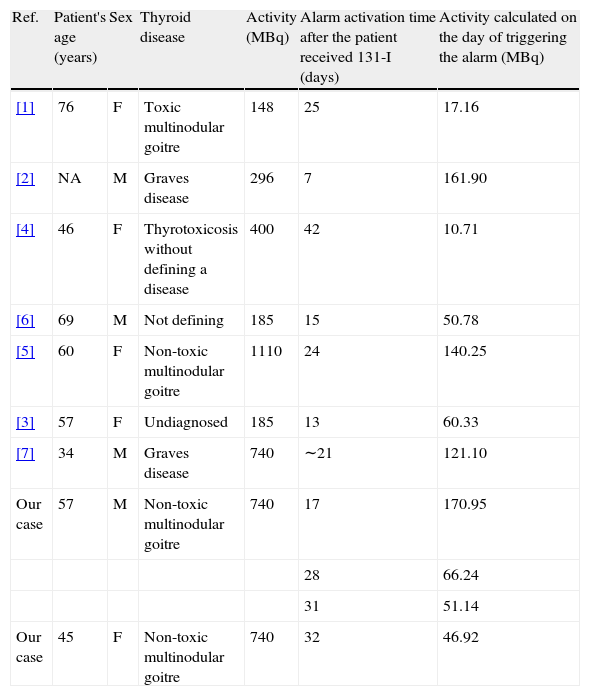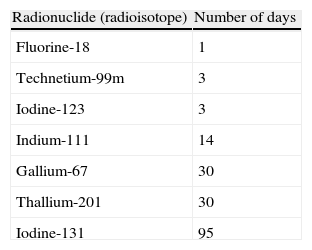An increased sensitivity of airport detectors, a growing number of isotopic tests, and globalization of the society have raised a number of false positive radioactive alarms at airports and public places. This paper presents two new cases of patients who triggered airport security alarms after receiving 740MBq of 131I for non-toxic goitre and attempts to compare surprisingly limited literature concerning this problem. A 57-year-old man triggered a security alarm at three different airports on the 17th, 28th, and 31st day after radioiodine exposure. Interestingly enough, in the meantime, on the 18th and 22nd day, no radiation was detected in him at the airport where he was twice detained as a source of radiation later on. The second case presents a 45-year-old woman who activated security alarm detectors while crossing a border on her coach trip 28 days after radioiodine administration.
La sensibilidad aumentada de los detectores en los aeropuertos, el aumento del número de pruebas isotópicas y la globalización de la sociedad han dado lugar a varias falsos positivos en las alarmas de radioactivos de los aeropuertos y lugares públicos. Este trabajo presenta dos nuevos casos de pacientes que alertaron las alarmas de seguridad en el aeropuerto después de haber recibido 740MBq de 131I en bocio no-tóxico. Los intentos de comparar la literatura son sorprendentemente limitados en relación a este problema. Un hombre de 57 años desencadenó una alarma en tres aeropuertos diferentes durante los días 17, 28 y 31 después de haber recibido exposición a yodo radioactivo. Curiosamente, mientras tanto, en los días 18 y 22, no se detectó la radiación en el aeropuerto, donde fue detenido dos veces más adelante como fuente de radiación. El segundo caso presenta una mujer de 45 años que activó los detectores de la alama de seguridad cuando cruzó una frontera en un viaje en autobús después de haber recibido yodo radioactivo.
Article
If you experience access problems, you can contact the SEMNIM Technical Secretariat by email at secretaria.tecnica@semnim.es or by phone at +34 619 594 780.

Revista Española de Medicina Nuclear e Imagen Molecular (English Edition)








